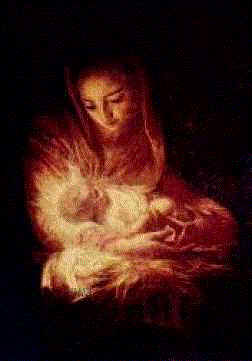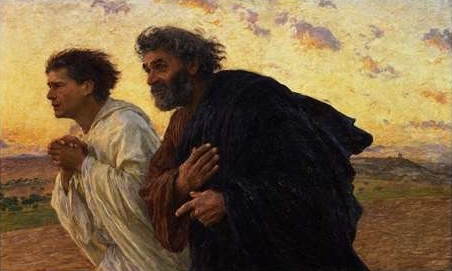Tender brow prepared for thorn
Tiny heart whose blood will save us
Unto us is born
Unto us is born
So wrap our injured flesh around You
Breathe our air and walk our sod
Rob our sin and make us holy
Perfect Son of God
Perfect Son of God
Welcome to our world
– Chris Rice, Welcome To Our World, v. 3
Make us holy . . .
Holy. It is a word that, for me, is packed with significance. I’m not sure of all the meanings for this word, but one of the most common, from a New Testament point of view, is “set apart”.
If you are a Christian, do you often think of yourself as “holy”? I find that somewhat foreign to my day to day thought processes. But I know by faith that I am set apart, I am holy. God in his love and grace sets us apart, puts us on display, uses us, even in our weakness, to glorify him. If you are his child, you are holy.
But you are a chosen race, a royal priesthood, a holy nation, a people for his own possession, that you may proclaim the excellencies of him who called you out of darkness into his marvelous light.
– 1 Peter 2:9 (ESV)
Notice the words used here by Peter: “chosen”, “royal”, “holy”. And, of course, we are. We are holy. And we did not gain this holiness, this royalty, through anything we’ve done. We were chosen and adopted. Being adopted by the King makes us royal.
I don’t know if I understand all of this, frankly. But as I ponder the meaning of Christmas, I understand this anew: Christ came to earth to make us holy. We could not do it on our own. But he chose us and he has made us a royal priesthood, a holy nation, and we belong to him.
It started on the holy night of Christmas. Can you hear it? In the darkness of a quiet night a baby cries. And the demons quake. It has begun: the Holy One has come to earth to set apart for himself those he has made holy. And nothing will stop him from accomplishing his purposes: to veil himself in the injured flesh of humanity, to walk with us, to be our Immanuel, to free us from the bond of sin. He is calling to us, to come out of the darkness and into his marvelous light.
So that we might be made holy!




 I realize an Easter post during Advent might seem a little strange. But I’ve always loved this Eugene Burnand painting. It depicts Peter and John running to the sepulcher on Sunday morning – running to the tomb where Jesus’s body has been placed following the horrible events of Friday.
I realize an Easter post during Advent might seem a little strange. But I’ve always loved this Eugene Burnand painting. It depicts Peter and John running to the sepulcher on Sunday morning – running to the tomb where Jesus’s body has been placed following the horrible events of Friday. I’ve always loved the glimpses of Joseph, the earthly father of Jesus, that we see in Scripture. He is only mentioned or described in a few places, but I like what I read when I read about Joseph. I like this man. Joseph is my kind of saint. I have little of Peter or Paul in me; no one has ever said “Bill reminds me of John the Baptist”. I’m not a son of thunder, I’m not a zealot, I don’t much resemble James, Philip or Stephen.
I’ve always loved the glimpses of Joseph, the earthly father of Jesus, that we see in Scripture. He is only mentioned or described in a few places, but I like what I read when I read about Joseph. I like this man. Joseph is my kind of saint. I have little of Peter or Paul in me; no one has ever said “Bill reminds me of John the Baptist”. I’m not a son of thunder, I’m not a zealot, I don’t much resemble James, Philip or Stephen.